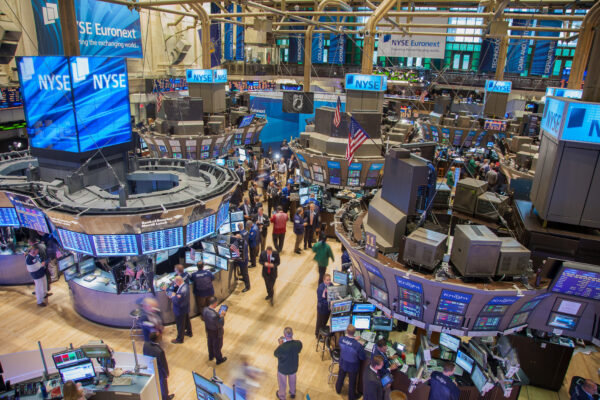Federal Reserve Pumping Keeps the Market from Dumping?
What’s happening now: Equity markets continue to push higher as investors expect Congress and the Fed to continue pumping stimulus into the economy. It is our expectation that the new stimulus package will come in early August and will be less robust as the first package. The House passed a $3.5 trillion package mid-May to “draw a line in the sand” for the Senate to react to (1). Senator McConnell is signaling the Senate will consider a roughly $1 trillion package (2). Given the election, we expect negotiations to be fierce but that a compromise will be reached. We believe consumers will see another round of direct payments to qualifying households, an extension to the increased level of unemployment benefits (although substantially smaller), and an extension of the PPP program for businesses. If the stimulus package were to hit a snag, then we expect substantial volatility in equity markets.
Ahead of the US, the European Union reached an agreement on their own stimulus package worth roughly $2 trillion (3). The negotiations were tough among the member nations, but ultimately a first-of-its-kind EU-backed debt issuance will be released to pay for the stimulus. The deal includes grants and loans to governments and businesses – but still requires approval by the individual governments of each member nation. Given the complexity of getting approval from each county, we do not expect the deal to have a meaningful impact on the EU economy until well into 2021, which is expected to decline by 13% in 2020 (4).
In addition to the expected US and EU stimulus packages, investors remain cautiously optimistic that a vaccine for COVID-19 is just around the corner and will be available for distribution before 2020 ends. If clinical trials continue to go well, we expect markets to remain somewhat buoyed despite daily infection rates in the US at their highest levels of the crisis. However, it is worth reiterating the US stimulus package and related domestic economic data is far more important at this moment to equity market volatility than vaccine expectations.

What’s next: Our primary concern for equity markets lies within the forward expectations of corporate earnings at these price levels. Said plainly, the last time we saw corporate equity valuations at these levels was during the dot-com bubble (5). Either equity markets need to come down, or economic data needs to come up quickly, as the current environment of high market levels and low economic levels are not sustainable. Almost every economic data point is negative when compared to the prior year. In our opinion, equity markets have little sustained upside potential at these levels.
Looking toward the “energy crisis” that has largely disappeared from headlines, the pandemic continues to put a major hiccup on oil demand, and a second wave of infections has thwarted any resurgence of that demand materializing. Following the OPEC monthly meeting, it has become clear that both Russian and some other OPEC members would like to relax the current oil production agreement – a sign that they believe a global economic recovery could be within a few months (6). However, statements from Saudi Arabia show the Kingdom’s desire not to participate in the lion’s share of those cuts, putting them at odds with Russia once again. While Russia and the Saudi’s could be on another crash course, the oil market is putting low odds of an OPEC breakup as the current oil supply is low and will result in draws from storage facilities and not the ground. Meanwhile, US shale is hurting and needs higher prices to get back in the game. We expect to see additional bankruptcies and defaults from US energy companies throughout 2020.
Bottom line: The entire US equity market is propped up by expectations of another stimulus package. In the very short-term, we expect equity markets to respond positively as that deal comes to fruition. Yet, if economic data continues to lag after the stimulus package is released, we believe substantial levels of equity volatility may return. As such, we feel comfortable with our overall defensive positioning. We will continue to monitor the data and react accordingly if macro-economic numbers improve.
(1) https://www.npr.org/2020/05/15/856095507/house-passes-3-trillion-coronavirus-relief-bill-that-has-dim-future
(2) https://www.cnbc.com/2020/07/24/heres-what-we-know-is-in-the-republican-coronavirus-relief-bill.html
(3) https://www.cnbc.com/2020/07/21/eu-leaders-reach-a-breakthrough-on-the-regions-recovery-fund.html
(4) https://ec.europa.eu/info/sites/info/files/economy-finance/ip125_en.pdf
(5) https://twitter.com/HeliosQR/status/1286091267265290241?s=20
(6) https://www.opec.org/opec_web/en/press_room/5620.htm






